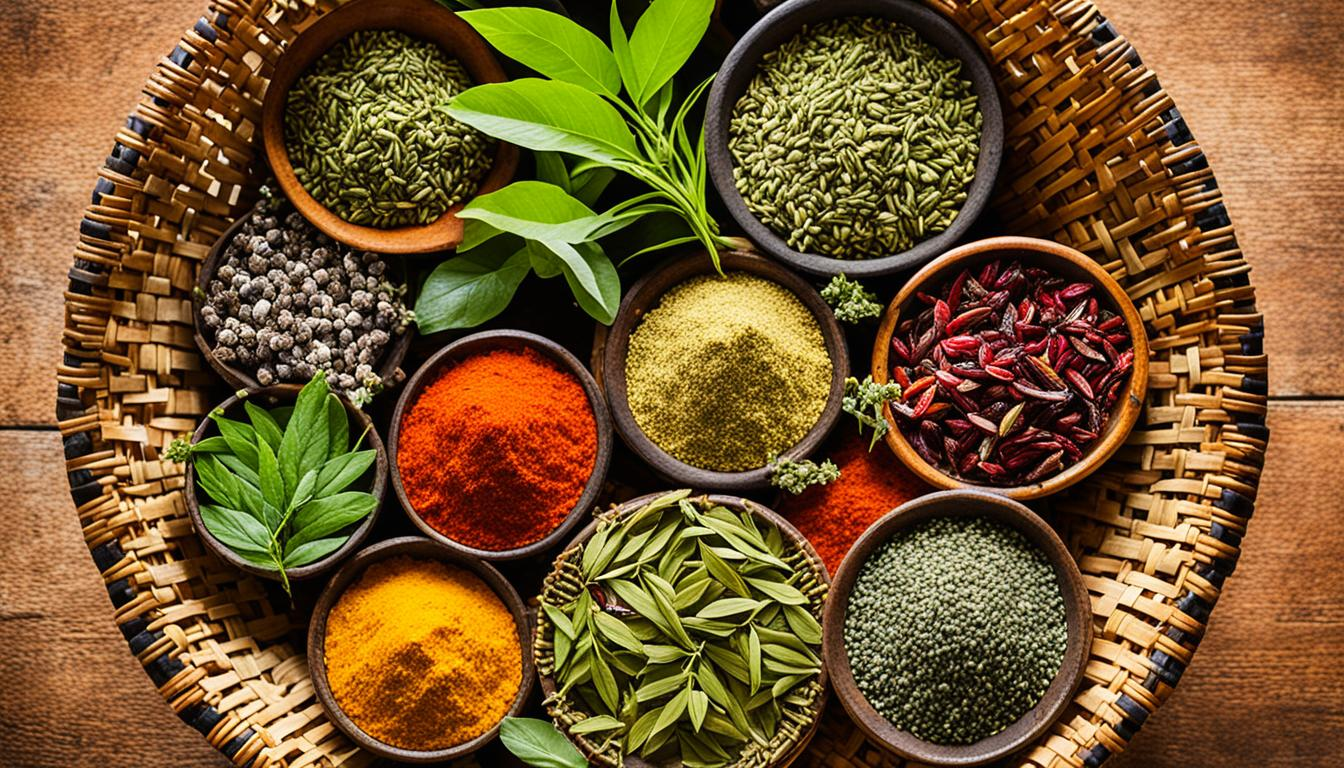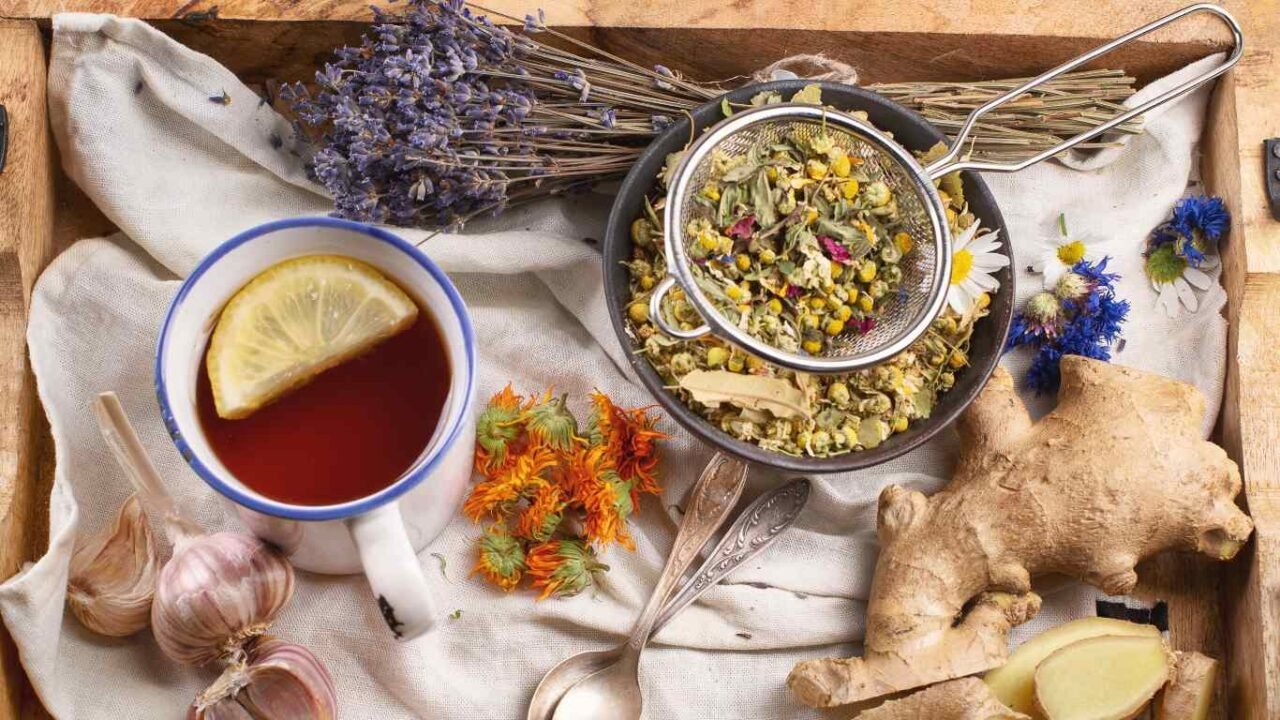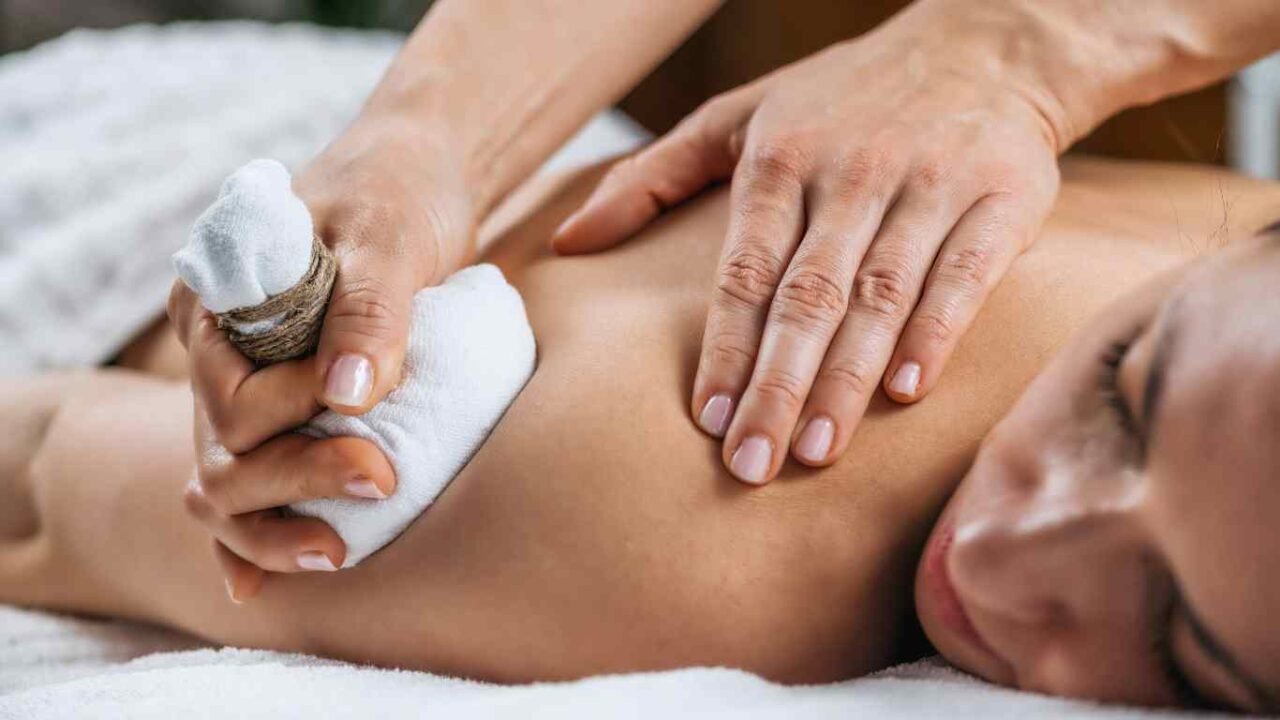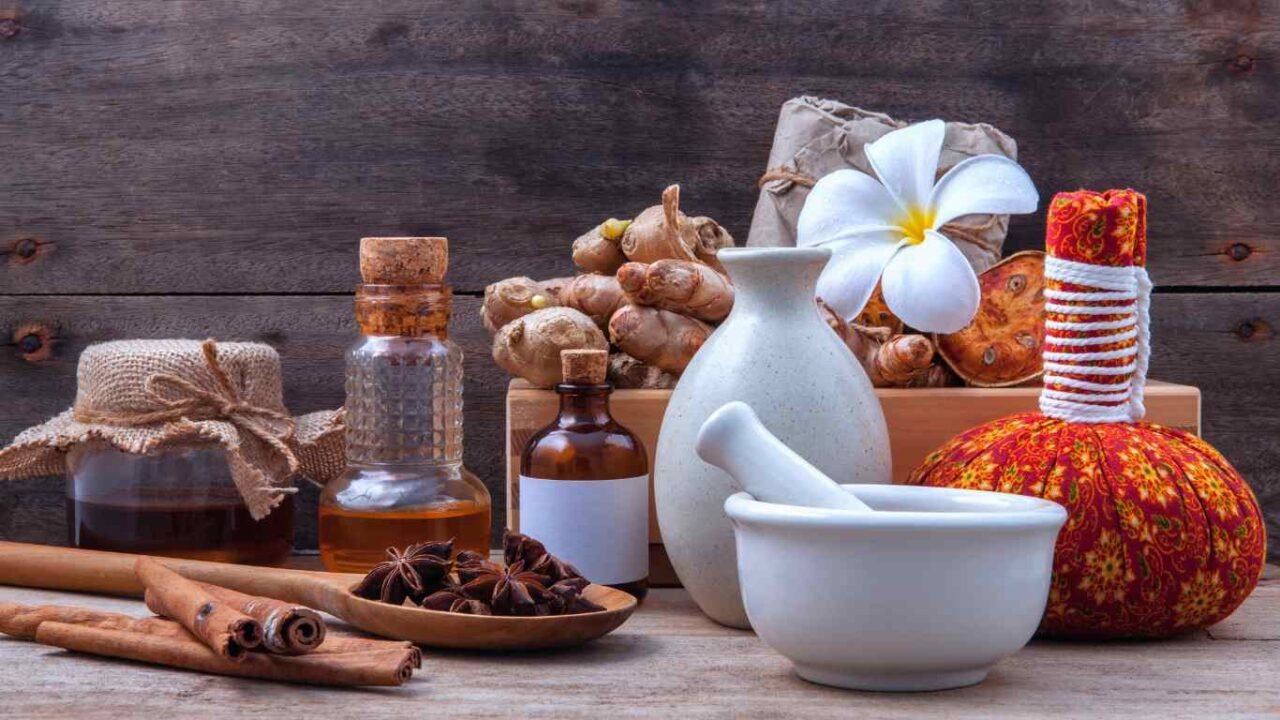Unlocking Indonesian Traditional Herbal Knowledge
Did you know that Indonesia, comprising over 17,000 islands, holds one of the planet’s largest repositories of herbal knowledge? This vast island chain, rich in biodiversity, has cultivated a unique pharmacopeia where each plant contributes distinct healing properties, reflecting centuries of Indonesian traditional herbal knowledge and phytotherapy.
Delving into this ancient practice reveals how the balance of body, mind, and spirit is central to wellness, akin to other systems like Ayurveda. Traditional medicine Indonesia emphasizes holistic well-being by addressing ailments at their roots, tailored to an individual’s unique constitution. The therapeutic approaches integrate a blend of meticulous herbal formulations aimed at restoring and maintaining health. In Indonesia, traditional medicine coexists with modern medical systems, offering alternative medicine options that cater to the diverse health needs of the population.
As you embrace the journey into Indonesia’s herbal heritage, you’ll discover a wealth of natural remedies catering to diverse health needs. This profound understanding stands as a testament to the country’s rich cultural and botanical diversity, offering timeless solutions rooted in nature’s wisdom.

An Introduction to Indonesian Traditional Herbal Medicine
Indonesian traditional herbal medicine, locally referred to as “jamu,” reflects a rich tapestry of cultural heritage and botanical wisdom. Ethnobotany, the study of how people of a particular culture and region make use of indigenous plants, plays a crucial role in understanding the depth of Indonesian traditional herbal medicine. This section offers a closer look at Indonesian traditional herbal knowledge, revealing how these age-old practices continue to influence modern healthcare methodologies within the plural medical system.
The Rich History of Indonesian Herbs
The history of Indonesian herbs is a testament to the archipelago’s biodiversity and cultural continuity. Pharmacognosy, the study of medicinal drugs derived from plants or other natural sources, has been integral to the preservation and application of Indonesian herbs throughout history. Early texts and oral traditions preserve the knowledge of indigenous plants, showcasing their applications across various health dimensions, including the use of medicinal plants. For centuries, Indonesian herbs have played a vital role in community health, chronicling a journey of natural healing that’s been passed down through generations.

Early Practices and Cultural Significance
Early practices in Indonesian herbal medicine highlight the profound cultural significance attributed to natural remedies. Ethnomedicine, the study of traditional medicine practiced by various ethnic groups, underscores the profound cultural significance of these early practices. Jamu, crafted from a diverse range of Indonesian herbs, embodies more than just therapy; it is a representation of cultural identity and communal well-being. Household practices often involved the preparation of these herbal mixtures, underlining the societal importance of maintaining health through natural means and influencing health-seeking behavior.
Modern Integration into Healthcare
The modern integration of Indonesian traditional herbal knowledge into contemporary medical practice signifies an important organizational shift. Integrative medicine, which combines conventional and alternative approaches to healthcare, plays a significant role in the modern integration of Indonesian traditional herbal knowledge. As Prof. Widodo illustrates, blending ancient wisdom with modern scientific techniques within the modern medical system can enhance healthcare outcomes. A closer look at these integrative practices reveals their potential in contributing adjunct therapies, notably in areas like cancer treatment. This harmonious blend of traditional and modern medicine advocates for a holistic approach to health, where Indonesian herbs play a pivotal role in disease management and prevention.
In summation, Indonesian traditional herbal knowledge not only retains its cultural resonance but also progressively aligns with modern scientific endeavors, emphasizing a comprehensive approach to healthcare.

Key Ingredients in Indonesian Herbal Remedies
Indonesia’s lush landscape provides a bounty of natural resources, including medicinal and aromatic plants, that are central to the country’s traditional healthcare practices. Botanical medicine, the use of plants or plant parts for therapeutic purposes, is central to the country’s traditional healthcare practices. The utilization of various indigenous plants forms the bedrock of Indonesian herbal remedies, each one offering unique health benefits to tackle a range of ailments.
Understanding the specific properties and applications of these natural remedies Indonesia offers is crucial for appreciating their role in promoting wellness.
Popular Herbs and Their Uses
Numerous herbs are commonly used in Indonesian herbal remedies. These herbs are rich in phytochemicals, which are chemical compounds produced by plants that have health benefits. Here are some of the most notable ones:
HerbPrimary Use TurmericAnti-inflammatory properties and digestive health GingerAlleviates nausea and improves circulation TamarindDetoxification and digestive aid GalangalEnhances immune function and reduces inflammation CentellaSpeeds up wound healing and improves mental function
Each herb is used not only for its primary medicinal properties but also for its synergistic effects when combined with others in elaborate preparations. Some herbs are also utilized for managing complex health conditions such as diabetes mellitus.

Sign Up for Our Newsletter and Receive Special Discount Offers in Your Email!!!
Sourcing and Sustainability
The sustainability of sourcing these herbs is a growing focus within the field of traditional herbal medicine. Agroforestry, the practice of integrating trees and shrubs into agricultural landscapes, is increasingly being adopted to ensure the sustainable sourcing of these herbs. Recent studies, like the OGSM-Gaps analysis, highlight the necessity of eco-friendly practices in the cultivation and harvest of these plants, considering various factors influencing their implementation. Sourcing sustainably ensures the ongoing availability of these botanicals while protecting Indonesia’s rich biodiversity.
As awareness of environmental impact increases, initiatives by local communities and governmental bodies have been pivotal in promoting eco-innovation in the natural remedies Indonesia practices.
By integrating sustainable practices, we can preserve the essential elements of these age-old traditions and ensure that Indonesian herbal remedies remain a viable option for future generations.
Traditional Healing Practices and Techniques
Traditional Indonesian healing is a holistic approach encompassing various practices designed to promote overall well-being. Holistic health, an approach to wellness that considers the whole person, including their physical, mental, and emotional health, is central to traditional Indonesian healing. This includes the integration of clinical pharmacy, which plays a crucial role in the plural medical system. Central to this is the ancient tradition of “Jamu,” which includes numerous complementary therapies, such as massage, that help balance the body’s energies.

Jamu: The Heart of Indonesian Healing
Jamu stands at the forefront of Indonesian traditional medicine, representing an age-old wellness regimen consisting of herbal concoctions prepared from a mix of roots, bark, flowers, seeds, leaves, and fruits. Herbal pharmacology, the study of the effects and mechanisms of action of herbal medicines, is fundamental to understanding the efficacy of Jamu.
These traditional Indonesian healing remedies, steeped in centuries of knowledge, aim to address both physical and mental well-being.
Massage and Other Complementary Therapies
Complementing Jamu, Indonesian traditional healing incorporates various massage techniques aimed at restoring balance and harmony within the body. Complementary therapies, treatments used alongside conventional medicine, are integral to traditional Indonesian healing practices. Traditional healing practices involve not only herbal medicines but also physical therapies that promote holistic health. These therapies are particularly beneficial for chronic disease patients, offering a natural approach to managing their conditions. Whether you seek relaxation or relief from physical ailments, these therapies are designed to support overall wellness.
The Scientific Basis of Indonesian Traditional Herbal Knowledge
The immense value of herbal knowledge Indonesia lies not just in its historical applications but also in its modern scientific validation. Phytotherapy research, the scientific study of the use of plant-based medicines, has validated many traditional remedies. Recent explorations, led by prominent researchers like Professor Widodo, offer a profound understanding of how traditional remedies can coexist and complement today’s scientific advancements. These herbs have shown significant therapeutic potentials, particularly in the treatment of various chronic diseases.

Research and Validation
Comprehensive studies delve into the molecular biology and genetics of Indonesian herbs, revealing their potential to complement modern pharmacogenomics. Ethnopharmacology, the study of the medicinal use of plants by various ethnic groups, has been instrumental in validating the therapeutic potentials of Indonesian herbs. This has spurred a deeper investigation into traditional medicines, ensuring these natural remedies not only retain their integrity but also align with contemporary medical standards.
Integrating Ancient Wisdom with Modern Science
The integration of ancient herbal practices with cutting-edge science ensures a holistic approach to wellness, incorporating alternative medicine as a key component. Herbal therapeutics, the use of herbs for therapeutic purposes, bridges the gap between ancient wisdom and modern science. By validating herbal knowledge Indonesia through rigorous scientific methods, researchers honor Indonesia’s biodiversity while adapting time-honored remedies to current health paradigms. This balanced synergy between age-old wisdom and modern research fosters a robust understanding of the therapeutic potentials of these herbs, securing their place in modern healthcare.
Traditional HerbModern Application TurmericAnti-inflammatory and Antioxidant Properties Betel LeafAntimicrobial and Digestive Aid TamarindRich Source of Antioxidants

Health Benefits and Applications of Indonesian Herbal Remedies
Indonesian herbal remedies offer a wealth of benefits, addressing a range of health concerns through natural means. Natural health products, derived from natural sources, play a significant role in the health benefits offered by Indonesian herbal remedies. These herbal formulations are widely respected for their preventive and therapeutic properties, particularly among chronic disease patients, enhancing the body’s overall vitality. Central to their usage is the promotion of general wellbeing and the ability to manage common ailments naturally.
Managing Common Ailments Naturally
Many individuals turn to Indonesian herbal remedies for their effectiveness in alleviating common health issues such as digestive problems, colds, and stress-related disorders. Herbal supplements, products made from herbs to supplement the diet, are commonly used to manage common ailments naturally. These remedies are also utilized for managing more complex conditions like diabetes mellitus. For instance, ginger is frequently used for its anti-inflammatory and digestive benefits, while turmeric serves as a potent anti-oxidant, supporting the immune system. Such remedies are grounded in centuries of empirical knowledge, emphasizing the principle of preventing illnesses before they develop further.

Enhancing General Well-being
Apart from addressing specific ailments, Indonesian herbal remedies are celebrated for their ability to enhance overall well-being and treat various chronic diseases. Nutraceuticals, food products that provide health benefits, are often incorporated into Indonesian herbal remedies to enhance general well-being. Ingredients such as tamarind and lemongrass are known for their detoxifying properties, promoting a sense of vitality and balance. Contemporary research further endorses these herbs by uncovering their multifaceted benefits. As you incorporate these natural medicines into your daily routine, you are embracing a holistic approach to health that is deeply rooted in tradition while evolving with current health practices.
Final Wisdom Of Indonesian Traditional Herbal Knowledge
Indonesian traditional herbal knowledge offers you a unique and integrative approach to health and wellness. Traditional health systems, which incorporate plant, animal, and mineral-based medicines, are integral to the understanding and application of Indonesian traditional herbal knowledge. The remedies emerging from the biodiversity-rich lands of Indonesia have stood the test of time, continually proving their value through both historical use and modern scientific research.

Subscribe Now – And Get Natural Beauty Tips Direct to Your Inbox!
In the realm of traditional medicine Indonesia has contributed significantly to global healthcare practices. The incorporation of ancient wisdom with contemporary science ensures that these age-old practices maintain their relevance in today’s health paradigms. This integration not only validates the effectiveness of Indonesian traditional herbal knowledge but also secures its place within modern medical frameworks as a form of alternative medicine.
As a global awareness of natural and sustainable healing grows, Indonesian herbal knowledge emerges as a crucial cultural and medicinal resource. It offers solutions and a sense of tranquility amid the challenges of modern life. This traditional medicine system beautifully balances respect for time-honored practices with a progressive approach to innovation, epitomizing a comprehensive health philosophy that meets contemporary needs.







